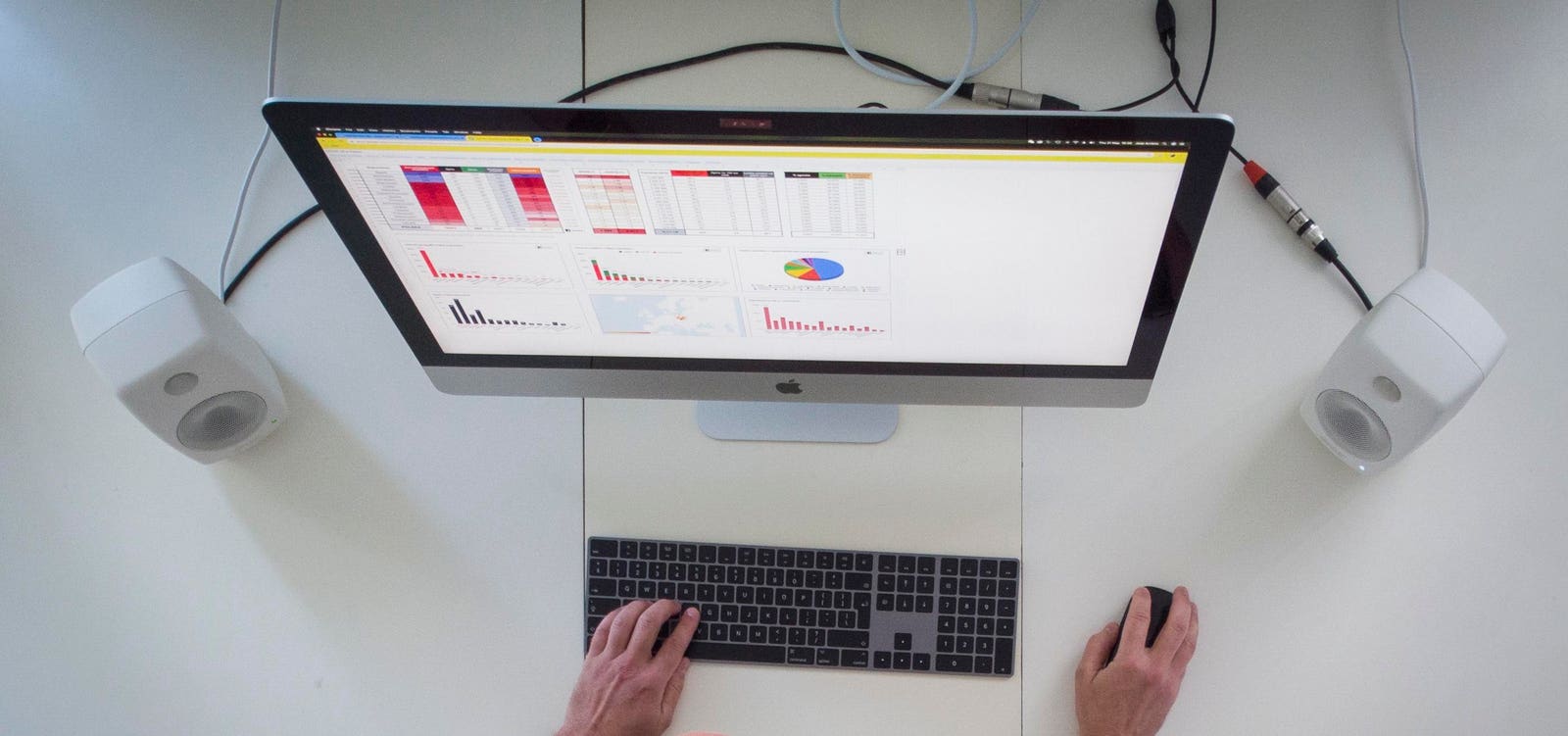MIAMI, FLORIDA – NOVEMBER 06: Jeff Bezos, Founder and Executive Chairman of Amazon speaks onstage during day 2 of the America Business Forum at Kaseya Center on November 06, 2025 in Miami, Florida. (Photo by Alexander Tamargo/Getty Images for America Business Forum)
Getty Images for America Business Forum
Jeff Bezos returned to an active operating role this week as co chief executive of Project Prometheus, an AI company emerging from stealth with more than six billion dollars in early funding. The startup focuses on applying advanced models to engineering and manufacturing across computers, vehicles, and spacecraft. Early reports note a team of nearly one hundred people, many from OpenAI, DeepMind, and Meta. Bezos shares the top job with Vik Bajaj, a scientist who previously worked at Google X. This move places Bezos directly inside the race to build industrial scale AI systems that connect software to physical production.
The statement from the European Commission is being displayed on a smartphone with AI and EU stars in the background, in this photo illustration. EU policymakers are reaching a political agreement on what is set to become the global benchmark for regulating Artificial Intelligence, in Brussels, Belgium, on December 12, 2023. (Photo by Jonathan Raa/NurPhoto via Getty Images)
NurPhoto via Getty Images
The European Commission introduced a package that softens last year’s AI Act and delays its strictest provisions. High risk systems in biometrics, health, and public services could receive up to eighteen additional months before compliance is fully enforced. The proposal also updates data protection and ePrivacy rules to allow broader data reuse for AI training and to reduce cookie pop up requirements. Officials argue the changes lower administrative costs for businesses and consumers. Civil society groups describe the package as a significant retreat from the protections adopted in 2024. The debate will shape how AI companies approach the European market.
WASHINGTON, DC – SEPTEMBER 04: Meta CEO Mark Zuckerberg speaks as (L-R) CEO of Social Capital Chamath Palihapitiya, White House “AI and Crypto Czar” David Scahs, U.S. President Donald Trump, first lady Melania Trump and Microsoft Co-Founder Bill Gates listen during a dinner at the State Dining Room of the White House on September 4, 2025 in Washington, DC. President Trump hosted tech and business leaders for dinner after they joined the first lady’s meeting of the Artificial Intelligence (AI) Education Task Force at the White House this afternoon. (Photo by Alex Wong/Getty Images)
Getty Images
The White House is reviewing an executive order that would centralize AI regulation at the federal level and prevent states from creating their own rules. A draft describes an AI Litigation Task Force within the Department of Justice that could challenge state laws that conflict with national policy. The order would also link certain categories of federal funding to cooperation with federal standards. Supporters say companies need clear rules across all fifty states. Critics argue the move reduces local authority and narrows public oversight. If adopted, the order would reshape the legal environment for AI systems across the United States.
Stuut raised $29.5 million dollars in a Series A led by Andreessen Horowitz to automate accounts receivable for large enterprises. The company uses AI agents to connect with ERP systems and handle collections, cash application, disputes, credits, and payments. Stuut says customers can achieve faster collection times and reduce manual labor that slows revenue operations. It is one of several venture backed companies pursuing automation in the financial back office. The funding allows Stuut to expand integrations with major ERP providers and address the routine record keeping work that frequently drains staff time in large organizations.
Albatross Founders Matteo Ruffini, Kevin Kahn, and Johan Boissard.
Albatross
Albatross launched from stealth with $12.5 million dollars in funding to build a real time product discovery engine. The founders previously worked on large scale personalization systems at Amazon. They argue that static recommendation models miss what users want at the moment. Their platform observes session level behavior and updates results continuously instead of relying on historical profiles. Investors describe it as a shift toward sequential models that interpret context and intent as users navigate online. Retailers testing the system say it can surface relevant items faster than traditional methods.
Native Foreign continued its push into AI assisted production with Beta Earth, a science fiction comedy created with writer producer Ryan Walls. The studio used a hybrid pipeline that mixes traditional story development with AI generated animation to produce a trailer that premiered at Adobe Max. Director Nik Kleverov says a team of about twenty people worked on the project, with headcount shifting as assets moved between departments. The company’s earlier short Critterz helped establish its approach to AI character work and continues production as a feature in London. Beta Earth marks another step in Native Foreign’s evolving workflow.
The 1HMX is the first full body immersion rig built for training humans – and robots.
HaptX
HaptX’s decade-long effort to build high fidelity VR haptics have finally been realized with the introduction of its full body free roaming system, the 1HMX. The new platform combines the company’s microfluidic gloves with whole-body tracking and integrated locomotion hardware, creating a unified system for industrial training, simulation, and robotics. Early plans suggested the user might be suspended in midair. The current architecture uses a modified dish system from Virtuix. The 1HMX is a modular, floor based, and designed for multi hour sessions inside complex virtual environments.
This column has a companion, The AI/XR Podcast, hosted by its author, Charlie Fink, and Ted Schilowitz, former studio executive and futurist for Paramount and Fox, and Rony Abovitz, founder of Magic Leap. This week’s guest is journalist and podcaster Kent Bye, of the Voices of VR Podcast. We can be found on Spotify, iTunes, and YouTube.








